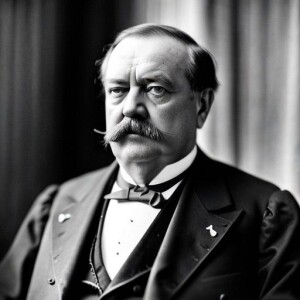Grover Cleveland, a man of many accomplishments, was the only president in US history to serve non-consecutive terms. He held office twice, from 1885-1889 and then again from 1893-1897, during a time of tremendous change and upheaval.
During his second term, Cleveland had to navigate a series of crises, including a brutal economic depression, labor unrest, and tensions with Spain over Cuba’s independence. Despite these challenges, Cleveland was a staunch fiscal conservative, committed to reducing government spending and cutting tariffs. He also championed civil service reform and helped establish the Interstate Commerce Commission to regulate the railroad industry.
One of the most controversial decisions of Cleveland’s second term was his handling of the Pullman Strike of 1894. When workers at the Pullman Palace Car Company went on strike to protest wage cuts and layoffs, Cleveland sent in federal troops to break up the strike. His decision was widely criticized by labor unions and progressive reformers, who saw it as an attack on workers’ rights.
Cleveland’s foreign policy was also a source of controversy during his second term. He was opposed to American expansionism and imperialism, and he refused to annex Hawaii or acquire territories in the Pacific. However, his support for Cuban independence from Spain created increased tensions with the Spanish government, ultimately leading to the Spanish-American War in 1898, after Cleveland left office.
Despite these challenges and controversies, Cleveland’s second term was marked by significant accomplishments and contributions to American history. His legacy includes his commitment to fiscal conservatism, civil service reform, and his efforts to regulate the railroad industry. Grover Cleveland was truly a president of the people, navigating turbulent times with strength and conviction.

